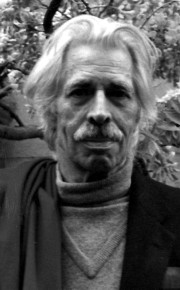Maurice Desselle was a pupil of Gurdjieff. After Gurdjieff’s death in 1949 he carried on with the transmission of inner Work, alongside such people as Henriette Lannes, Henri Tracol, and other contemporaries, under the guidance of Mme. de Salzmann. In addition to groups which he took in France, he devoted much of his time and energy to groups in England. People experienced a warmth and understanding from him which was part of his nature. He was tireless. His state of health was secondary to his commitment to come to London. He had many group members there, who loved and respected him. Sometimes they would travel to be with him in France.
There he had a centre outside Paris where practical activities could take place which required the development of attention and manual skill.

One of his characteristics was his ability to come straight to the point of any subject. An unforgettable regular reminder of his was, “I said it was simple; I did not say it was easy.” And when turning one’s attention inside, he would say, “Go there ... directly.” No reference to his sayings would be complete without the oft remembered “Yes, you try ... and a new feeling is bound to appear.”
There were aspects of him which are hard to define. An example of this could be expressed by his wearing of a cloak. When he wore it in England, one might see him walking along the pavement with his long greying hair and his billowing dark cloak in the gathering night. What would a passer-by have thought about a cloak, all those decades ago, on the streets of Kensington? Was he a man of mystery? Was he flamboyant? Was he over-dramatic? Was he simply keeping warm! Whatever the reason, it fitted in with him; it never seemed like a mere affectation.
Among the things he did in his daily life was broadcasting on the Third Programme of the BBC, equivalent today to Radio 3. He talked about aspects of English Literature. He wrote several novels such as Les Tenebres du Dehors.[1] He was also engaged in public relations, assisted by his wife. Then the placing of some of the Work ideas in popular songs was an experiment which did not meet with much success. But it showed the inventiveness and initiative of which he was capable.
He rarely, if ever, when overseeing a group meeting, was harsh or critical in a way likely to provoke a negative reaction in someone. He welcomed observations in pupils which showed that some effort had been made to understand something. At one meeting, someone said that he had been looking up at the Milky Way, and remembering that although it looked like a flat sheet of stars and galaxies, it really had an unimaginable depth, infinite perhaps.
M. Desselle warmed and brightened at this, plainly seeing the analogy with seeing inside oneself.
On another occasion, a pupil said that he had realised that all of the people, sitting in the group, were inside one another; that the eyes took in the impression, whatever was there, and the brain converted it into the “outside world.” That each of us has this inside him or her, yet we have the impression that we all live together “out there” somewhere. M. Desselle’s eyes flashed for a moment as he acknowledged this.
He encouraged people to examine words, particularly of course the words found in the Work, where they had a special meaning; to discriminate.
He continued to travel to London in his old age, and only sheer lack of strength compelled him to stop coming. He was deeply missed. One contemporary said of him, “His inner Work was pure.”
1 Paris: Julliard, 1958, 285p.
| Copyright © 2013 Paul Crompton This webpage © 2013 Gurdjieff Electronic Publishing Revision: November 18, 2013 |